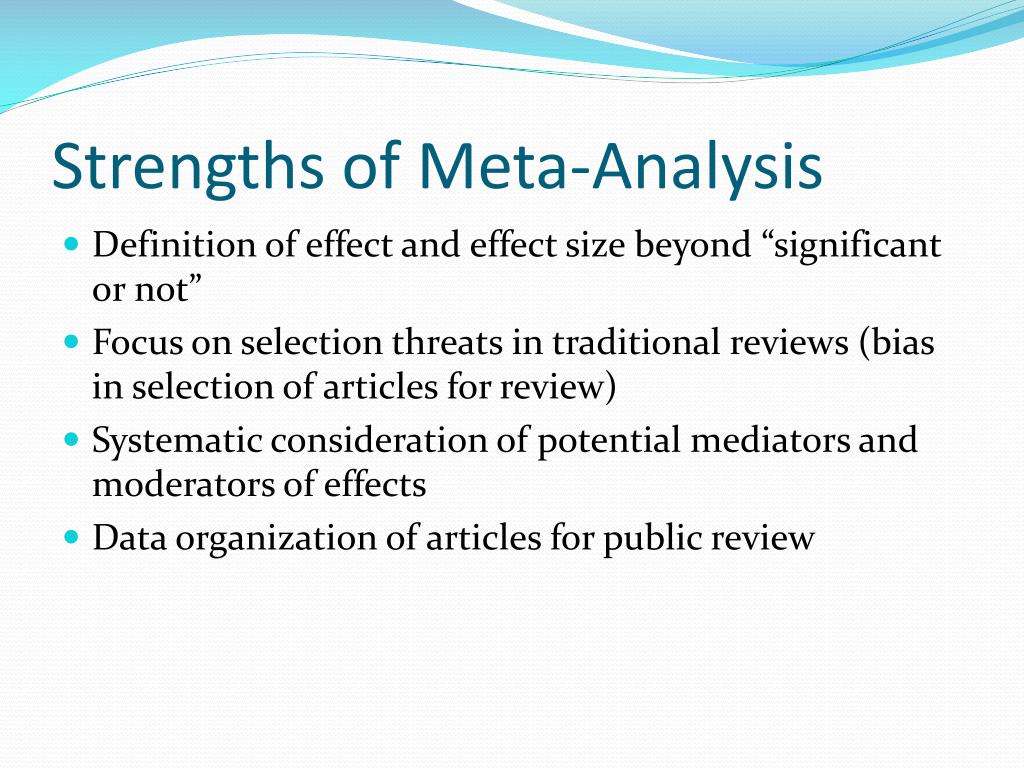

By utilizing a standardized approach for critiquing a meta-analysis, the internal validity of the analysis can be determined. A checklist for reviewing a meta-analysis is shown in Table 1. These areas include the development of the study question methods of literature search data abstraction proper use of statistical methods evaluation of results evaluation for publication bias sensitivity analysis and applicability of results. This article focuses on the key areas that the reader should be aware of to determine whether a meta-analysis was properly designed. 10 A checklist assessing the quality of a meta-analysis has also been developed by the QUOROM group and is available online ( ). The Quality of Reporting of Meta-analyses (QUOROM) statement was published to provide guidelines for conducting meta-analyses, with the goal of improving the quality of published meta-analyses of randomized trials. 9Īs with the planning of any study, the study design of a meta-analysis determines the validity of its results. 9 Nevertheless, the results of a meta-analysis combining data across all 8 studies concluded that streptokinase was associated with a statistically significant reduction in mortality. For instance, 8 studies of streptokinase suggested its effectiveness in treating patients presenting with myocardial infarction, yet only 3 of these studies reported statistically significant results. If it is well conducted, the strength of a meta-analysis lies in its ability to combine the results from various small studies that may have been underpowered to detect a statistically significant difference in effect of an intervention. 3 Since then, metaanalysis has been applied to most conditions in gastroenterology and hepatology, including inflammatory bowel disease, cirrhosis, irritable bowel syndrome, and colon cancer. 2 Meta-analysis later made its appearance in the gastroenterology literature, with one of its first applications occurring in the assessment of the effectiveness of antisecretory drug dosing for duodenal ulcers. The first applications of meta-analysis were made more than 30 years ago in the psychiatric literature. However, several years ago, a meta-analysis of clinical trials examining this issue demonstrated that there is no clear benefit of high doses of vitamin C on the common cold. For example, Nobel Laureate Linus Pauling lectured for many years on the benefits of vitamin C in the treatment and prevention of the common cold. Results from a meta-analysis can refute expert opinion or popular belief. Meta-analysis provides a standardized approach for examining the existing literature on a specific, possibly controversial, issue to determine whether a conclusion can be reached regarding the effect of a treatment or exposure.


 0 kommentar(er)
0 kommentar(er)
